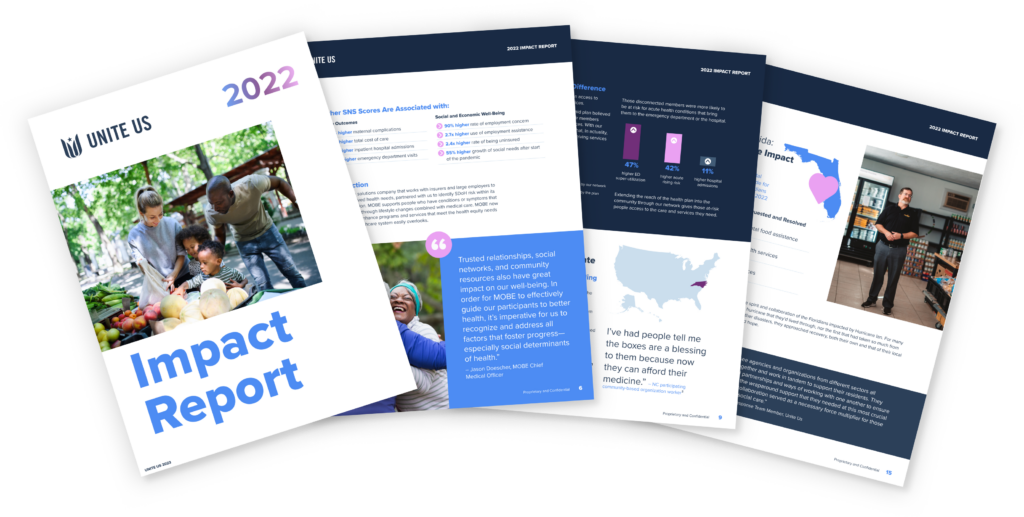
Extending a Clinician’s Reach into the Community
By Dan Brillman
WHEN A WALK-IN CLINIC ISN’T ENOUGH
Imagine that you’re a healthcare provider at a walk-in clinic in late July. You open the curtain to a waiting room and come face-to-face with a small, elementary school age child and her mother. You recognize them and call the child by name, giving her oxygen and albuterol to help her breath through her asthma attack. You know that she’ll have to be admitted because this was a bad one, the worst attack she’s had so far. You should know: this is the fourth time you’ve seen her in the last month.
While health care providers can treat their patients’ symptoms and educate them on how to use their medications, many aren’t set up to manage care beyond the four walls of the emergency room, to treat the social, environmental, and socio-economic determinants of health that are contributing to the problem — in this case, the asthma. The child and her single mother live in low income housing, unaware of the mold growing behind the walls or the cockroaches hidden behind cabinets. They can’t always afford to buy groceries, much less an albuterol or steroid inhaler for the child’s worsening asthma.
The cost of not treating the social causes
Not only does the child’s suffering increase over time as her asthma worsens, but her continued and frequent visits to the emergency room cost everyone involved:
- The child – time and health, because she has to take time away from school and isn’t getting better
- The mother – time and money, because she needs to take time off from work to take her daughter to the clinic
- The emergency room – time spent on a patient whose problems could be better managed by the PCP, and possibility of not receiving the full reimbursement from Medicaid
- Insurance (Medicaid) – money to pay for recurring emergency room visits
The root cause of the child’s recurring emergency room visits and escalating asthma issues could be the family’s income. According to a Johns Hopkins Children’s Center study[1], children of families with incomes below the national poverty threshold are more likely to be diagnosed with asthma and have an asthma attack that required emergency treatment than children of families with higher incomes. But, what can you do, as a provider, to treat the non-clinical factors that are contributing to the child’s asthma?
Treating the whole patient beyond the 4 walls of the hospital
With access to a Unite Us network, the health care provider could enter the young patient into a local network of providers, to help meet many underlying needs of the patient:
- Housing – Help the mother connect to a legal provider to make a claim against the landlord about the mold and connect to the local housing agency to look for other, affordable housing that is free of mold and cockroaches
- Insurance – Generate a referral to a benefits enrollment case manager to ensure the child is enrolled in Medicaid/CHIP prescription drug coverage so she can afford both her albuterol and steroid inhalers
- Food – Set up a meeting with a social worker to ensure the mother is enrolled in SNAP benefits and using them properly
- Job – Connect the mother to an employment specialist to help her search and apply for a better job that pays more, to help relieve the stress upon her and her child
By participating in a coordinated network like the ones powered by Unite Us, the health care provider can ensure that the child is receiving the additional support needed – support that the clinic itself cannot provide within its four walls. The Inner-City Asthma Study showed that home-based environmental interventions can reduce unscheduled clinic visits by one for every three patients treated.[2] Unite Us networks enable providers to seamlessly work together, support individuals by integrating all social determinants of health, track clients through their total health journey, and report tangible outcomes in a cohesive and collaborative ecosystem.
Unite Us is a Veteran-owned technology company that was initially founded to help veterans but has since expanded its reach to help communities across the United States, including those supporting the elderly, low-income and previously incarcerated populations.
For more information on Unite Us and our Coordinated Networks in 31 communities and 16 states please fill out your information here or call us at1-844-786-4838.
[1]“Time to rethink the inner-city asthma epidemic?”, ScienceDaily, January 20, 2015
[2]“Results of a Home-Based Environmental Intervention among Urban Children with Asthma”, New England Journal of Medicine, September 9th, 2004
About Unite Us
Unite Us is the nation’s leading software company bringing sectors together to improve the health and well-being of communities. We drive the collaboration to predict, deliver, and pay for services that impact whole-person health. Through Unite Us’ national network and software, community-based organizations, government agencies, and healthcare organizations are all connected to better collaborate to meet the needs of the individuals in their communities.



